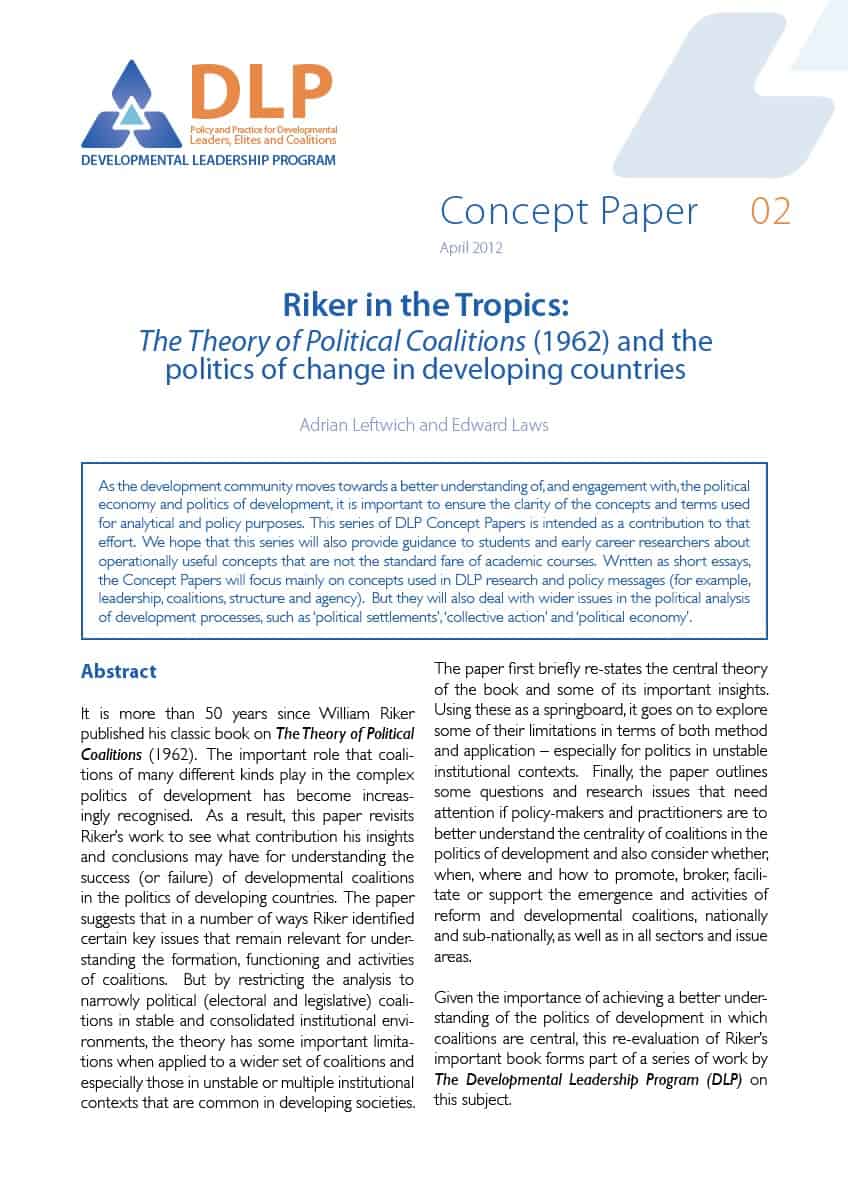It is more than 50 years since William Riker published his classic book on The Theory of Political Coalitions (1962). The important role that coalitions of many different kinds play in the complex politics of development has become increasingly recognised. As a result, this paper revisits Riker’s work to see what contribution his insights and conclusions may have for understanding the success (or failure) of developmental coalitions in the politics of developing countries. The paper suggests that in a number of ways Riker identified certain key issues that remain relevant for understanding the formation, functioning and activities of coalitions. But by restricting the analysis to narrowly political (electoral and legislative) coalitions in stable and consolidated institutional environments, the theory has some important limitations when applied to a wider set of coalitions and especially those in unstable or multiple institutional contexts that are common in developing societies.
The paper first briefly re-states the central theory of the book and some of its important insights. Using these as a springboard, it goes on to explore some of their limitations in terms of both method and application – especially for politics in unstable institutional contexts. Finally, the paper outlines some questions and research issues that need attention if policy-makers and practitioners are to better understand the centrality of coalitions in the politics of development and also consider whether, when, where and how to promote, broker, facilitate or support the emergence and activities of reform and developmental coalitions, nationally and sub-nationally, as well as in all sectors and issue areas.
Given the importance of achieving a better understanding of the politics of development in which coalitions are central, this re-evaluation of Riker’s important book forms part of a series of work by The Developmental Leadership Program (DLP) on this subject.










